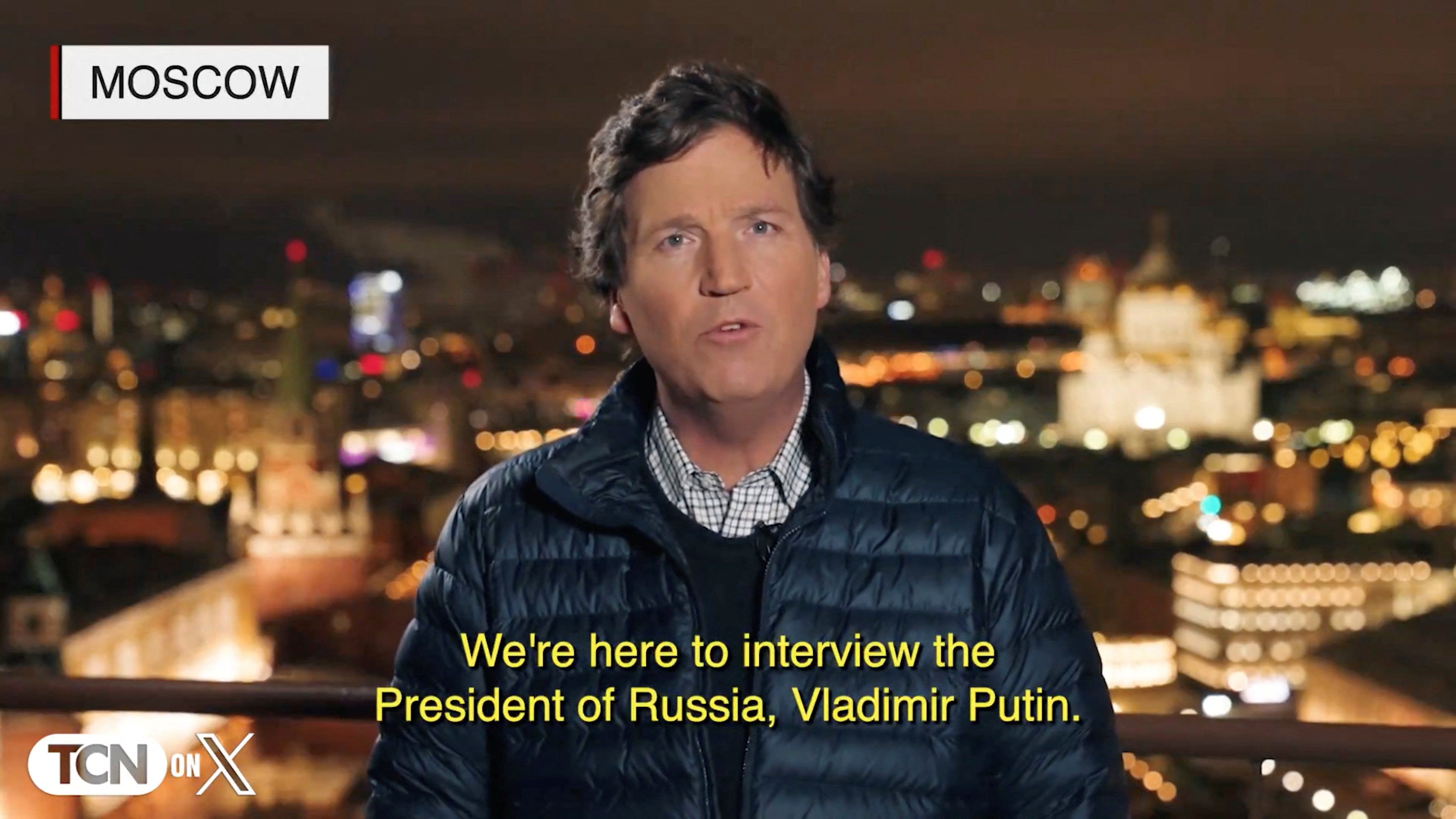It’s a busy Thursday as we watch the Trump and the Supremes legal dance that could determine whether the former US president is eligible to run in November’s election. The Supreme Court hearing comes from the Colorado case, which argues that Donald Trump’s alleged involvement in the Jan. 6, 2021, “insurrection” legally disqualifies him from running for President, something his team obviously opposes.
Don’t bet on Trump being disqualified by the conservative-dominated court, but in the long-shot scenario that he is – we won’t know a decision until likely just before Super Tuesday, March 5 – well, then, rewrite the playbook as to what happens next. “American Carnage 2” perhaps?
But first, it’s Super Bowl weekend, and while the tailgate conspiracy party over Taylor Swift’s presidential influence steams ever onward, the biggest political football continues to be support for Ukraine.
Last night, Republican senators refused to coordinate the play on Joe Biden’s domestic border deal, one that bundled in military support for Ukraine. Trump sacked any chance it had when he flexed his soon-to-be-the-nominee political muscle and demanded it not be passed. He is the Republican leader again, in every way but his actual election, and there are crisp little creases along the seams of the party where former opponents have folded.
Democrat Sen. Chuck Schumer, D-N.Y., then picked up the fumbled ball and called an audible, saying he would try to pass a $95-billion bill focused solely on military support for Ukraine and Israel, but that also looks like it won’t get over the line.
Now what?
As the Feb. 24 second anniversary of the Ukraine war nears, the political game has profoundly changed as much as football changed in 19o6 when the forward pass was allowed. Only in politics, they’re now passing backward, instead of forward. Republicans can no longer rally support for a democracy fighting Vladimir Putin and illegal Russian expansion.
Trump’s first term signaled a neo-Republican isolationism and a refusal to honor longstanding foreign policy alliances, but with Ukraine suffering new military setbacks while facing deep shortages of equipment and soldiers, this is more urgent. It is handing Putin a win.
Without the $60 billion in US support – which pays for critical items such as HIMARS, Javelin, and Stinger missiles to take out Russian troops, tanks, and aircraft, and the heavy artillery ammunition the army needs for the grinding land battles – Ukraine will lose the eastern part of its country. As we called it in Eurasia Group’s 2024 Top Risks report, Ukraine will be partitioned. Putin wins.
Ukraine's security and continued US support for NATO’s Article 5 were once articles of faith. Now they are optional items on the foreign policy buffet menu. That is what has been normalized.
It’s not just a uniquely American issue. A consequential Angus Reid poll in Canadathis week revealed that both attention to and support for Ukraine’s fight against Russia is waning, especially among Conservative voters.
The poll found that the number of people saying Canada has offered “too much support” has doubled since the early weeks of the war. “One-quarter (25%) of Canadians believe their country is doing too much to assist Ukraine in its fight against the Russian invasion, up from 13% who said the same in May 2022. During the same interval, the number who say Canada is not doing enough has halved (38% to 19%),” according the Angus-Reid.
But here is the kicker. Of that group, Conservative voters make up the largest numbers. “The number of 2021 CPC voters who say Canada has done too much for Ukraine has more than doubled from 19 to 43% between May 2022 and now.”
Both in the US and Canada, the right is turning away from Ukraine. You might think that would pose some significant political challenges in a country like Canada, which has the largest Ukrainian diaspora in the world, if anyone cared to notice. But that’s another thing the poll revealed ...
Turns out, people are tuning out from the war, even though things are more urgent than ever. “The number of Canadians following news of the conflict closely has dropped from 66 to 45% in that same period – a trend that holds for Canadians of all ages and political stripes.”
On a day when President Volodymyr Zelensky just removed top Gen. Valery Zaluzhny in a desperate effort to reboot his country’s military fortunes and perhaps shore up his own position domestically, the news from indifferent allies abroad is as bad as news from the front.
A newly confident Putin is about to strike again tonight, when he sits down with his sycophant Tucker Carlson for a two-hour, pre-approved … what to call this? A PR stunt? An interview? A propaganda fest?
Here is what to watch for:
- Will Putin reveal anything about negotiating a peace deal or simply try to sell Russia’s view of the invasion, a view Carlson has long supported, to the growing far right in North America and Europe?
- Will Putin say anything about Trump to try to influence the US election?
- Will this interview deepen the resolve of Republicans to block more Ukraine funding to undermine both Zelensky and Biden?
- Facts: What will be straight-up lies and BS, and what will be factual?
For people paying less and less attention to the facts on the ground in the war, this Putin ploy will garner millions of views and allow him to shape the political debate.
We will have Ian Bremmer's Quick Take reaction to the Putin interview later tonight on our social media channels, and we will have more fact-checking in tomorrow’s GZERO Daily, so watch for those.
So, as the political Super Bowl of politics is playing out in Ukraine right now, there is no doubt who’s ahead: Russia.
